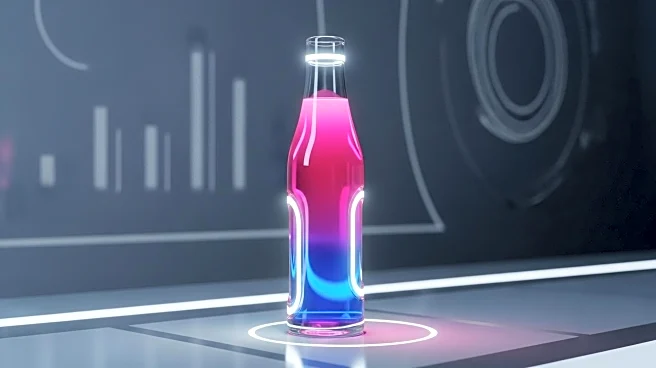What's Happening?
The functional beverage market is experiencing significant growth, with projections indicating it will reach nearly $250 billion by 2030. Currently valued at $149 billion, the market is expanding at a compound annual growth rate (CAGR) of 8.9%, driven by increasing consumer awareness of health benefits associated with functional drinks. These beverages are enriched with health-enhancing ingredients such as amino acids, vitamins, and minerals. The ready-to-drink category, including functional juices, sparkling waters, sodas, and teas, is particularly popular among busy consumers. A key trend in this market is personalization, where products are tailored to individual health goals, lifestyles, and genetic profiles. This shift is prompting manufacturers to innovate with advanced delivery systems and bioactive compounds that support specific functions like energy, immunity, and cognitive performance.
Why It's Important?
The growth of the functional beverage market reflects a broader trend towards personalized nutrition and wellness. As consumers increasingly seek products that align with their individual health needs, the beverage industry is responding with innovations that go beyond traditional demographic targeting. This trend has significant implications for the food and beverage industry, as it requires companies to invest in research and development to create products that offer specific health benefits. The focus on personalization also highlights the potential for integrating data from wearable devices and health apps to create beverages that adapt to changing consumer needs. This evolution in product development could lead to more effective and targeted health solutions, benefiting both consumers and manufacturers.
What's Next?
As the functional beverage market continues to grow, manufacturers are likely to explore new ingredients and technologies to meet consumer demand for personalized health solutions. The integration of data from wearable devices and health apps could become more prevalent, allowing for the creation of beverages that adapt to individual health needs in real-time. Additionally, the focus on advanced delivery systems and bioactive compounds may lead to further innovations in how functional ingredients are absorbed and utilized by the body. Industry stakeholders will need to monitor these trends closely to remain competitive and capitalize on the opportunities presented by the evolving market.
Beyond the Headlines
The shift towards personalized functional beverages raises important questions about consumer privacy and data security, as the integration of health data from wearable devices and apps becomes more common. Companies will need to ensure that they handle consumer data responsibly and transparently to maintain trust. Additionally, the focus on personalized nutrition may lead to ethical considerations regarding access and affordability, as these advanced products may not be accessible to all consumers. The industry will need to address these challenges to ensure that the benefits of personalized functional beverages are widely available.











